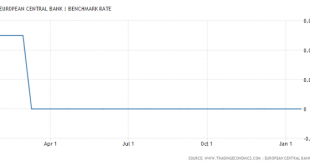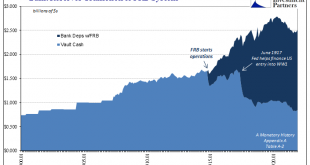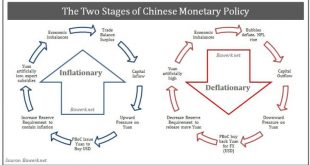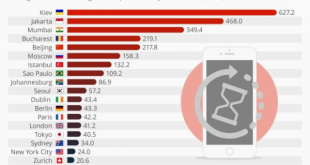We discuss the rate differentials between Switzerland, Britain, Europe, Japan and the United States and how this Developed Financial Markets carry trade is incentivizing excessive risk taking with tremendous leverage and destabilizing the entire financial system in the process in this video. You want to know what is behind weekly market records, borrowed money via punchbowl central bank liquidity. This ends badly every...
Read More »The Age of Cryptofinance
Although the hype around bitcoin and blockchain – the public ledger that records bitcoin transactions – is now receding, the next generation of cryptofinance technologies is already moving ahead and applying the lessons learned. Christine Schmid: Tell me a bit about Monetas. Johann Gevers: The...
Read More »A New Frame Of Reference Is Really All That Is Necessary To Start With
In the middle of 1919, the United States was beset by a great many imbalances. Having just conducted a wartime economy, almost everything before then had been absorbed by the World War I effort. With fiscal restraint subsumed by national emergency, inflation was the central condition. Given that the Federal Reserve was by then merely a few years old, no one was quite sure what to do about it. Chairman of the Federal...
Read More »Forget Bitcoin, but Remember Blockchain?
The most obvious potential use for blockchain technology is the one that already exists – payment systems. But there is much more to blockchain than this. Ever since bitcoin came on the scene in 2009, evangelists have proclaimed that the end of fiat currency is nigh. A so-called cryptocurrency,...
Read More »Emerging Markets Offer Unique Opportunities
Despite slower growth: Emerging markets remain of key importance for the Swiss financial center. Only a few years ago, emerging markets were considered a prime example of economies with almost unlimited growth potential. Thanks to annual double-digit growth rates in the wake of the financial...
Read More »Chinese Philosopher Kings, Losing their Yuan FX Religion?
It took a while, but the world are slowly coming to grips with the simple fact that the red-suzerains in Beijing are not the infallible leaders en route to a new superior economic model as they thought they were. All the craze that emanated from the spurious work of Joshua Cooper Ramo, which eventually led to works like “How China’s Authoritarian Model Will Dominate the Twenty-First Century,” are slowly catching...
Read More »How to Invest in the New World Order
In our latest Toward a New World Order, Part III we ended by promising to look closer at investment implications from the political and economic shift we currently find ourselves in; and that story must begin with the dollar. While known to the investing public for years, the Bank of International Settlements (BIS) recently acknowledge that the real risk-off / risk-on metric in global markets is the dollar and...
Read More »Toward A New World Order, part III
A new world order is coming of age and the transition is painful to accept for a Western middle class with a deep-seated sense of entitlement. We showed how the West feels threatened globally in Toward a New World Order and followed up explaining how this translate into domestic politics in Toward a New World Order Part II. We will now continue this series by showing how gross economic mismanagement have created the...
Read More »Who Has To Work The Longest To Afford An iPhone?
How many hours must you work to buy a new iPhone? It varies dramatically around the world, reflecting disparities in productivity and purchasing power. According to a recent report by UBS that aims to measure well-being by estimating how many minutes workers in various countries must work to afford either an iphone, a Big Mac, a kilo of bread or a kilo of rice, the average worker in Zurich or New York can buy an iPhone...
Read More »Who Has To Work The Longest To Afford An iPhone?
How many hours must you work to buy a new iPhone? It varies dramatically around the world, reflecting disparities in productivity and purchasing power. According to a recent report by UBS that aims to measure well-being by estimating how many minutes workers in various countries must work to afford either an iphone, a Big Mac, a kilo of bread or a kilo of rice, the average worker in Zurich or New York can buy an iPhone...
Read More » Swiss Economicblogs.org
Swiss Economicblogs.org









